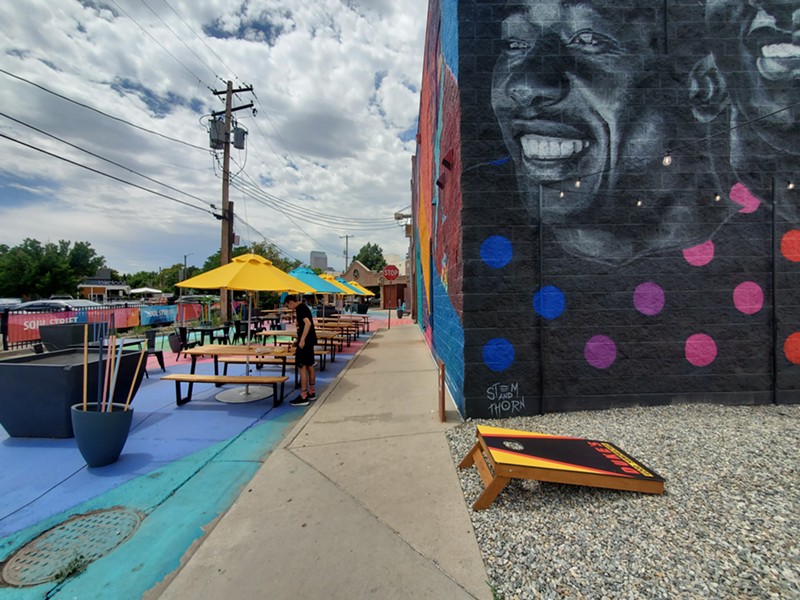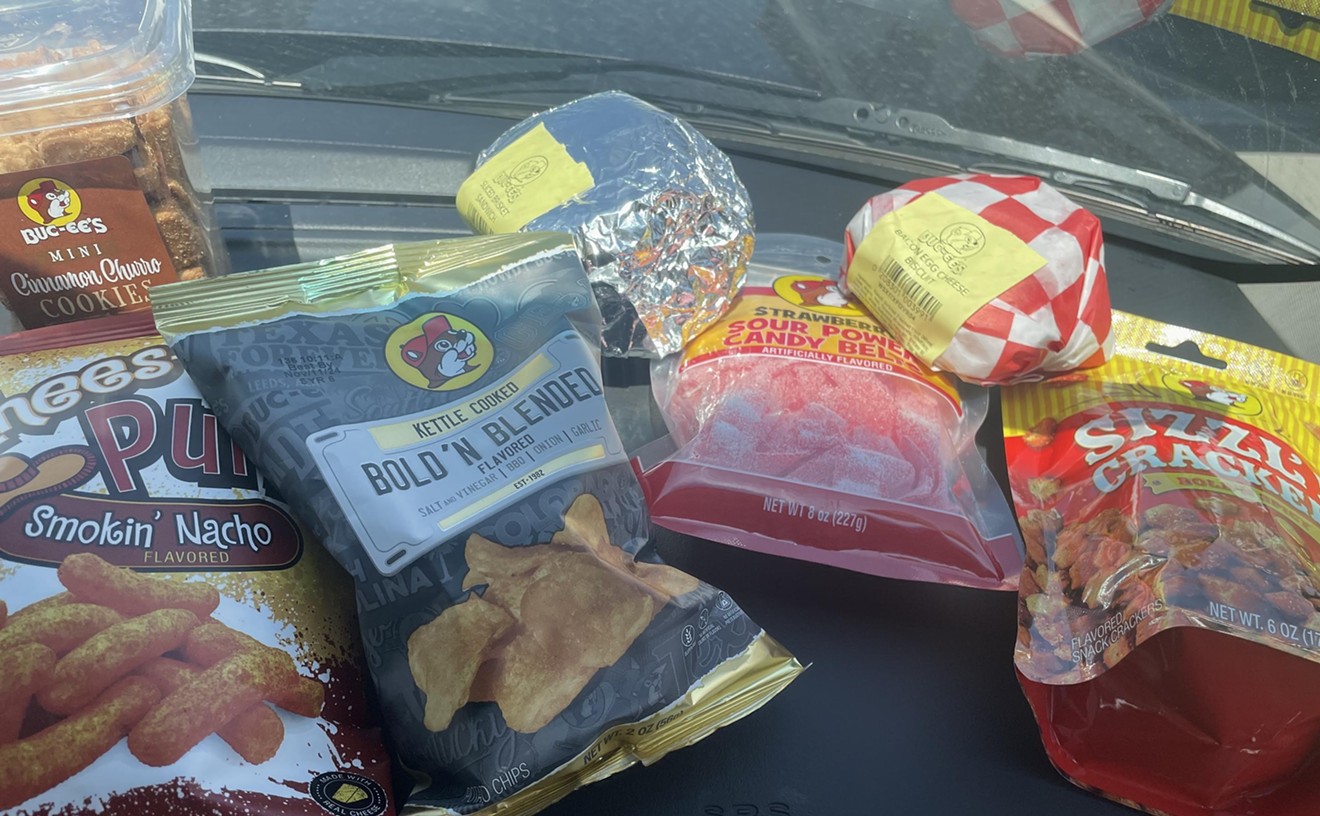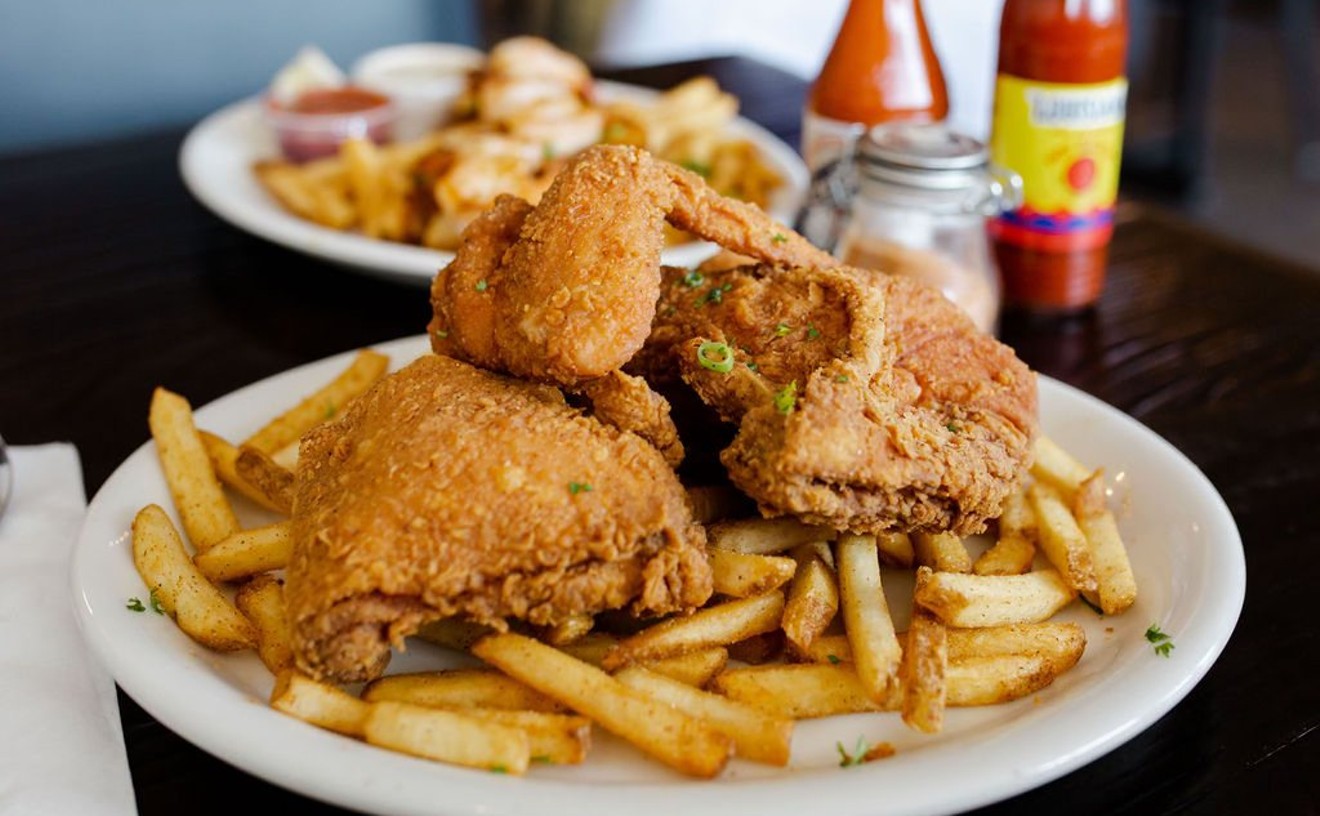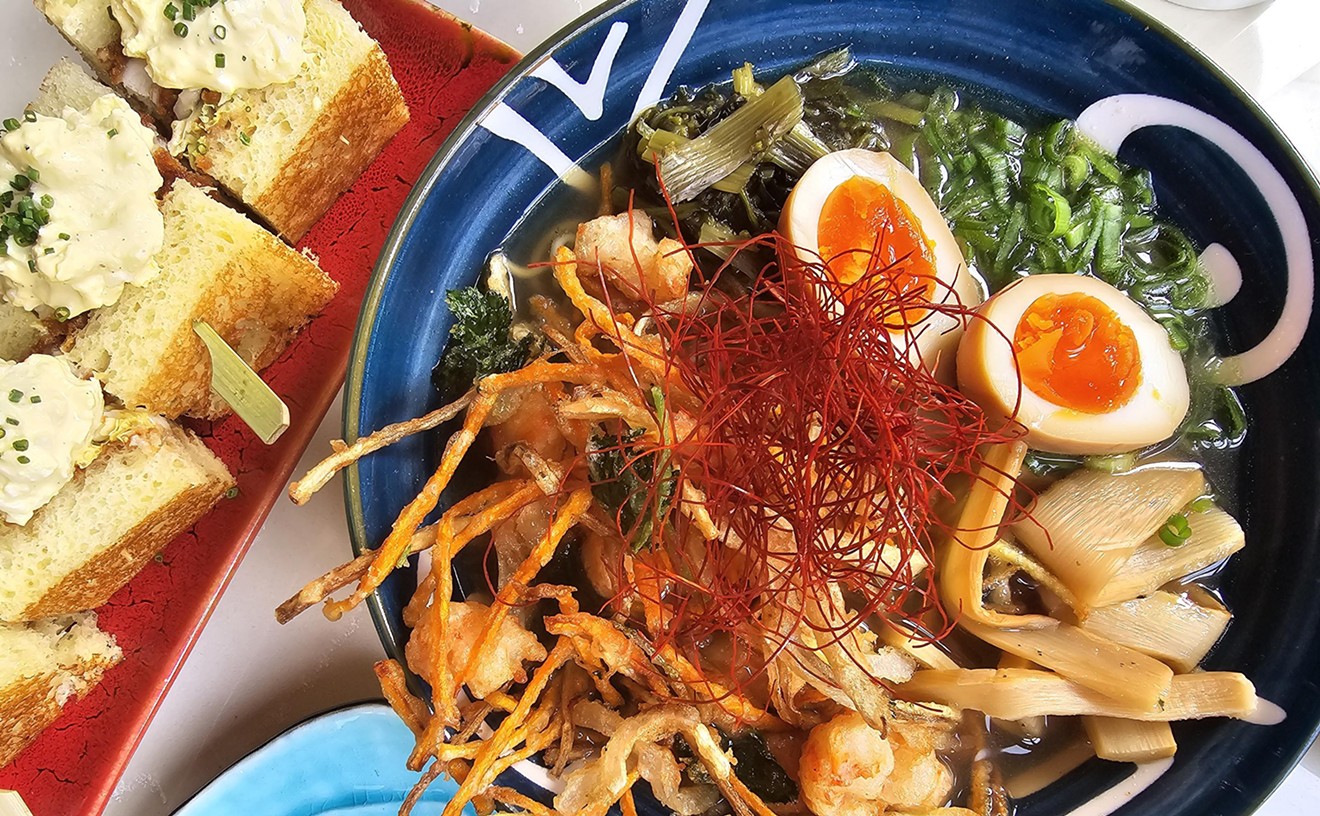Three years into the five-year pilot program, no one has submitted a complete application for the permit, which would allow customers of drinking age to walk through a designated area with an open beverage. The city anticipated a swell of applications, but it has received only one initial filing — from a collection of businesses in Five Points that included Spangalang Brewery as well as Coffee at the Point and Agave Shore, which are both defunct.
These businesses intended to serve guests on a small, closed section of Clarkson Street dubbed Soul Street. Neighborhood volunteers painted the asphalt and set up tables and planters, but the soul of Soul Street was lost when the permit was never completed; the street is now open to vehicular traffic.
Other businesses have reached out about the program, notes Eric Escudero, spokesperson for Denver's Department of Excise & Licenses, but none have officially started the process.
Escudero attributes the lack of applicants to several factors. When Denver's program for common consumption launched not long after pandemic restrictions were lifted, restaurants and bars were still focused on staying afloat, he notes. Plus, many already had new outdoor spaces approved under the temporary outdoor dining program created specifically to counter COVID restrictions. This allowed restaurants and bars to expand onto sidewalks, streets and other spaces; at the time, more than 300 businesses participated.
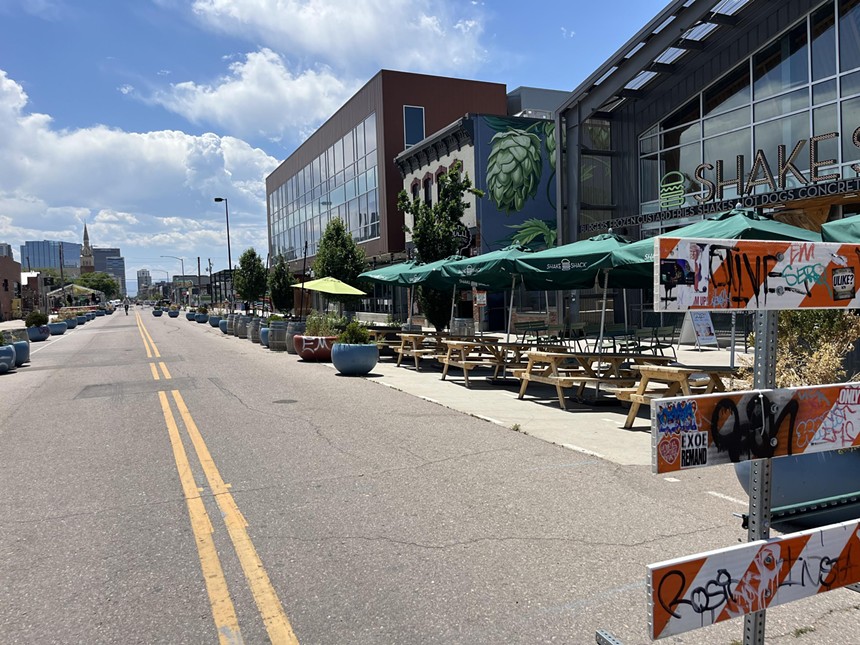
The closure of Larimer Street between 29th and 30th in RiNo is part of the COVID-era outdoor places permit program.
Kristin Pazulski
The difference between the outdoor places program and the common consumption permit is that the latter creates a more flexible space for restaurants to serve customers, allowing patrons to carry beverages from place to place within a certain area.
"This isn't Las Vegas, where you can walk around anywhere with your drink," Escudero explains. The method for designating the common consumption area is not dictated by the permit, he adds, but there has to be some type of well-marked barrier for a permit to be approved. "The ordinance and state statute do not list specific parameters, so applicants can find the solution that works best for their space to achieve the goal."
Another reason the common consumption program hasn't taken off, Escudero says, is that restaurants can also file for an outdoor communal dining permit, which allows a collection of businesses to collaboratively apply for a shared outdoor dining space. Under the outdoor communal license, several restaurants may share a set outdoor space, but customers must stay in their seats and can only order from one restaurant — and they cannot wander with a drink in hand.
The outdoor places and communal dining permits have shorter, less involved approval processes, Escudero notes, while the common consumption process takes significantly more time and collaboration.
To get approval, bars and restaurants must form a "promotional association" — there have to be at least two liquor license holders involved — and the association must be approved by the city. After that, the group outlines a physical area to be approved as an "entertainment district" by Denver City Council. Once that district is approved, the group can then apply for the common consumption license. Requirements include an area map, which must outline the space that will be closed off to vehicles, plus sanitation, transportation and security plans.
The permitting department is willing to guide people through the process, but it's a heavy lift. "We think it's still a good idea," Escudero concludes. "We are eager to work with anyone who wants to do this."

